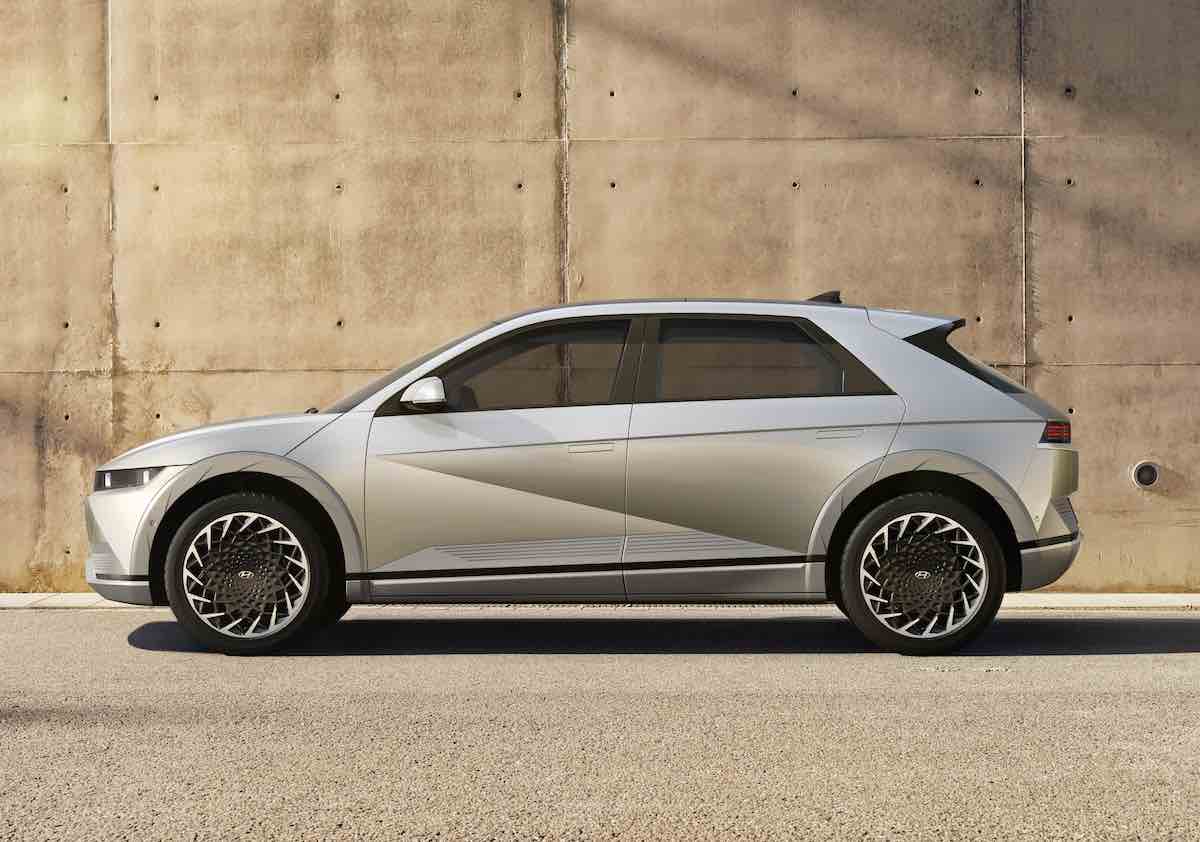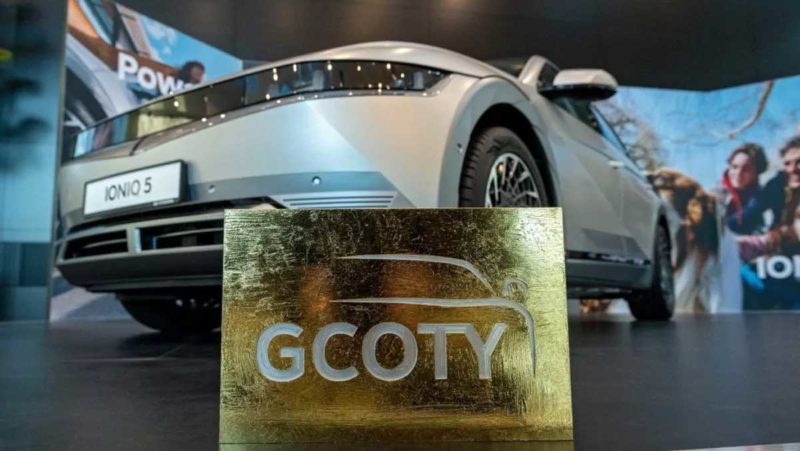The Hyundai Ioniq 5 electric SUV has nabbed the prestigious German Car of the Year (GCOTY) award, prevailing over all other competitors in all other classes.
The award – which was announced as ambitious new EV targets were announced by the new German coalition government on Thursday – is the fourth year in a row that an electric vehicle has won the German car award, following wins by the Jaguar i-Pace (2019), the Porsche Taycan (2020), and the Honda e (2021).
However, the Ioniq 5 is the first vehicle to win the award that features vehicle-to-load charging and the vehicle’s stand-out design inside and out pleased judges on all criteria, starting with a retro design that draws strongly from Hyundai’s first concept vehicle, the 1974 Pony.
Designed from the ground up as an electric-only vehicle built on the South Korean automaker’s e-GMP platform, the 4.64m Ioniq 5 has oodles of room on the inside without having the feel of an over-sized vehicle on the outer.
“The Hyundai Ioniq 5 is not just a standout electric car. To us, it’s this year’s top model,” said Jens Meiners, initiator and jury member of the GCOTY award panel in a statement.
“Ioniq 5’s unique combination of design, efficiency, and driving pleasure helped the car earn above-average scores across all criteria without showing any weak spots. In our eyes, Ioniq 5’s operating concept and battery technology are ground-breaking. And although it is the 2022 ‘German Car of the Year’, Ioniq 5 definitely has global appeal.”

Michael Cole, president and CEO at Hyundai Motor in Europe said that the award underlines how popular electric vehicles are becoming in Germany – which is just as well considering the European powerhouse now has a target to have 15 million EVs on the road by 2030.
“Ioniq 5 receiving this award in such a highly competitive environment proves that we have succeeded in creating an exceptional vehicle that stands out among its competitors in the European automotive market,” he said.
“Additionally, this victory shows that battery electric vehicles are becoming more relevant for our customers in Europe. The Ioniq 5 currently is the leading model in our electrification strategy and further driving Hyundai’s vision of zero-emission mobility.”
In Germany, Hyundai and Kia combined claim around 8.7% of sales, equal to almost 130,000 units between January and September in 2021. Hyundai’s EV sales in that period were up 124.3% from the previous period with almost 19,000 electric vehicles sold.
The Ioniq 5 was launched there in July, and up to the end of September it had sold 1,195 units according to the Korea Bizwire.
In Australia, the Ioniq 5 is available from $71,990 before on-roads and comes in either a 58kWh rear-wheel drive or 72.6kWh all-wheel drive configuration, with the latter getting up to 480km driving range (WLTP).
Its arrival locally proved so popular though, that Hyundai’s first allocation sold out within hours. But don’t worry, more are on the way.

Bridie Schmidt is associate editor for The Driven, sister site of Renew Economy. She has been writing about electric vehicles since 2018, and has a keen interest in the role that zero-emissions transport has to play in sustainability. She has participated in podcasts such as Download This Show with Marc Fennell and Shirtloads of Science with Karl Kruszelnicki and is co-organiser of the Northern Rivers Electric Vehicle Forum. Bridie also owns a Tesla Model Y and has it available for hire on evee.com.au.

